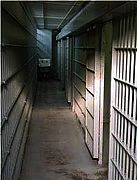Families of Bahai Leaders Speak Out
» Bail Set for Hassan Fathy
Speaking to Rooz, Hassan Fathy’s family revealed that a court had set bail for the journalist’s release, while the families of other Bahai leaders who have been behind bars for the past four years called for the observance of the political prisoners’ basic rights, including family visitation rights under Iranian law.
Meanwhile, people close to Marziyeh Rasouli, a journalist who was arrested at her home during a midnight raid nearly two weeks ago, told Rooz that they have no information about Marziyeh’s condition or whereabouts, despite their daily visits to the Evin Prison’s administrative offices. Ms. Rasouli made a short call to her family minutes after her arrest but her condition since is unknown.
Hassan Fathy was arrested on November 13 after speaking to the BBC Farsi television station about an explosion at a Revolutionary Guards facility. State-run media outlets have accused him of cooperation with the BBC Farsi television station, a claim that has been denied by both Fathy’s family and BBC.
Hassan Fathy’s wife, Fatemeh Hejrat, tells Rooz, “They arrested my innocent husband. He had only spoken [to BBC] as a journalist, but he was accused of disrupting public order and disseminating lies, which is unfair.”
In separate interviews with Rooz, the families of Fariba Kamalabadi and Jamaloddin Khanjani, who have been behind bars along with five other Bahai leaders for the past four years, called for the observance of their basic rights under Iranian law.
Fariba Kamalabadi, Jamaloddin Khanjani, Afif Naeimi, Saeid Rezaie, Mahvash Sabet, Behrouz Tavakkoli, and Vahid Tizfahm are the seven Bahai leaders who ran a group known as the “Yaran” to lead Iran’s Bahai community.
Mahvash Sabet has been behind bars since March 5, 2008, and the other six since May 14, 2008. They have been charged with national security crimes, including espionage for Israel, disrupting public morality, and acting against the Islamic Republic.
The seven leaders were sentenced to 20 years behind bars by the trial court. The appellate court reduced the sentences to 10 years after throwing out charges such as espionage for Israel. The appellate court’s decision, however, was deemed to undermine the Sharia by Iran’s prosecutor general and was set aside to reinstate the trial court’s 20-year sentences.
Since their arrests, the seven leaders have not been allowed to visit their families outside prison, a right guaranteed to all political prisoners under Iranian law. Ms. Kamalabadi’s brother tells Rooz, “Fariba, along with Ms. Mahvash Sabet, are at the Evin Prison. They have weekly visitations with their families along with 30 other political prisoners. They had no access to telephones until two months ago. Since then, they are allowed one very short call per month.”
He adds, “We are still waiting for their release, and we hope that they are freed immediately and unconditionally. In the very least, we ask that their rights under the law, such as visitation rights, be respected until their release.”


